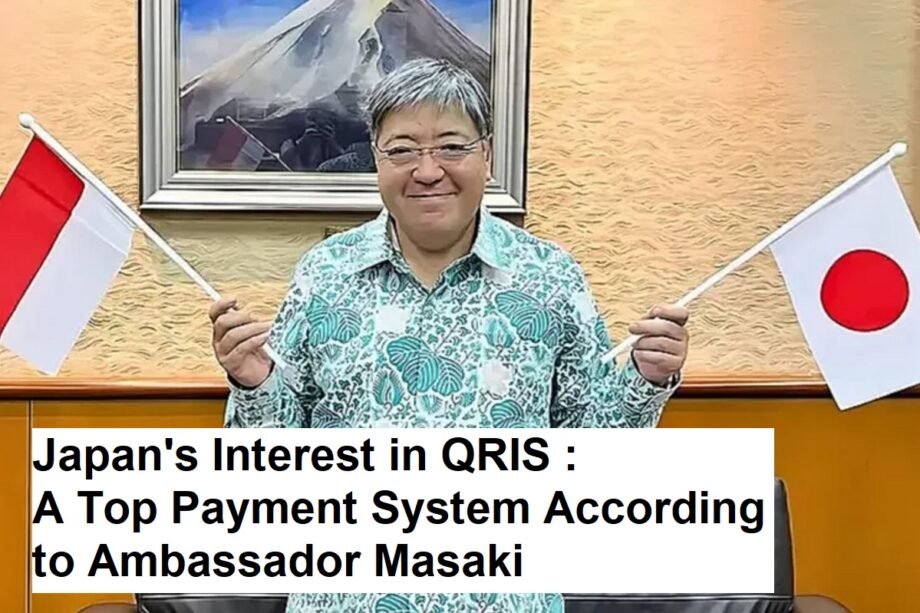In the rapidly evolving world of digital payments, QRIS (Quick Response Code Indonesian Standard) has caught the attention of Japan. According to the Japanese Ambassador Masaki, QRIS is considered one of the best payment systems globally. This growing interest signifies an important milestone for Indonesia’s payment ecosystem and represents a bridge for stronger economic and technological collaboration between Japan and Indonesia.
What is QRIS and Why It Matters?
QRIS is an Indonesian national standardized QR code payment system designed to unify all QR code payments across the country. By standardizing QR codes, QRIS enables consumers and merchants to transact seamlessly regardless of the payment service provider. It enhances convenience, security, and interoperability in the digital payments landscape.
Japan’s Interest in QRIS: Insights from Ambassador Masaki
Recently, Ambassador Masaki expressed Japan’s interest in adopting QRIS as part of their digital payment infrastructure. He praised QRIS as one of the best payment systems due to several reasons:
- Standardization:QRIS’s unified code removes fragmentation in payment systems, simplifying transactions.
- Ease of Use:Its user-friendly interface broadens accessibility for all types of users from consumers to merchants.
- Security:Robust security protocols protect users against fraud and data breaches.
- Inclusivity:Supports financial inclusion by bridging unbanked populations into digital finance.
According to Ambassador Masaki, these features make QRIS stand out as an exemplary model in payment technology.
Why Japan is Considering QRIS: Key Reasons
1. Advancing Cashless Society Goals
Japan is actively pursuing a cashless society to improve economic efficiency and reduce cash handling costs. QRIS aligns with this vision by providing a simple and scalable solution for digital transactions.
2. Interoperability and User Experience
Japan recognizes the value of QRIS’s interoperability, which integrates multiple payment providers into a single standard, elevating the user experience by enabling seamless payments.
3. Supporting SMEs and Financial Inclusion
Small and medium enterprises (SMEs) in Japan stand to benefit from a unified payment model. The interoperability and accessibility of QRIS could encourage wider adoption among smaller merchants, fostering inclusive economic growth.
4. Leading Innovation and Regional Cooperation
Japan aims to be a leader in digital payment innovation in Asia. Embracing QRIS provides a basis for regional cooperation between Japan and Indonesia, leveraging Indonesia’s advancement in payment technology.
Summary Table: Attributes of QRIS That Attract Japan
| Feature | Description |
| Standardization | Unified QR payment code simplifying transactions |
| User-Friendly | Easy for consumers and merchants to adopt |
| Secure Transactions | Enhanced fraud protection and data security |
| Financial Inclusion | Bridges digital finance access for unbanked and small merchants |
| Scalability | Capable of supporting growth in digital payments and market expansion |
Implications of Japan’s Interest in QRIS
For Indonesia
- Global Recognition:Japan’s interest validates Indonesia’s efforts in digital payment innovation.
- Economic Opportunities:It opens doors for increased collaboration and export of payment solutions.
- Technology Exchange:Encourages bilateral exchange of payment technologies and expertise.
For Japan
- Enhanced Payment Ecosystem:Adoption or integration of QRIS principles can modernize Japan’s payment systems.
- Boost for SMEs:Simplifies digital payments for smaller merchants, boosting economic activity.
- Regional Leadership:Solidifies Japan’s role as a digital payment innovation hub in Asia.
For Consumers and Merchants
- Seamless Transactions:Cross-border payment solutions could become simpler and more accessible.
- More Choices:Wider adoption of QRIS means more payment options with consistent experience.
- Increased Trust:Enhanced security reassures users in adopting digital payments.
Conclusion: QRIS as a Model for Modern Payment Systems
Japan’s interest in adopting or learning from QRIS, as stated by Ambassador Masaki, highlights how Indonesia’s innovation in digital payments is gaining international recognition. QRIS exemplifies a modern, inclusive, and secure payment system that meets the needs of today’s digital economy.









